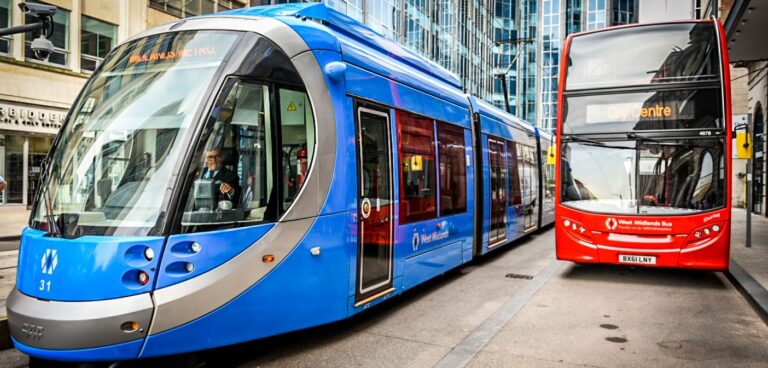The West Midlands Metro network will be extended in Walsall, Birmingham, Dudley, Sandwell and Wolverhampton under a wide-ranging plan to transform transport across the region.
Further investment would see rail stations opened, new rapid bus services launched, lower fares, more zero-emission vehicles, a very light rail line in Coventry and miles of safe cycling routes created to support the region’s economic growth and its 2041 net-zero carbon targets.
The West Midlands Combined Authority (WMCA) board has approved bids to the UK government’s City Region Sustainable Transport Settlement (CRSTS) fund and Bus Service Improvement Plan fund, which, topped up with local funds, could secure investment of up to £2bn over the next five years.
This includes £280m towards both improvements to the existing West Midlands Metro network and for the design and detailed planning work for the next series of extensions.
Further region-wide schemes to be supported include installation of 1,000 EV charging points and 10 ultra-rapid charging stations at key locations for commercial fleets, and expansion of contactless ticketing and best value fare capping.
Deliver The Bus Service Improvement Plan bid includes the development of 110km (68 miles) of new bus priority routes, with bus lanes and junction upgrades to improve reliability of services, a simplified lower cost fare system across operators, and expansion of the new ‘West Midlands On Demand’ bus service.
The WMCA board has also backed a bid for £55m investment into a fleet of 200 zero-emission hydrogen buses in collaboration with National Express West Midlands.
Cllr Ian Ward, WMCA portfolio holder for transport and leader of Birmingham City Council, said: “We have set out an ambitious bid that supports our aims of delivering a green revolution in transport and targets investment in the region’s more deprived and poorly connected communities – as better connections attracts both jobs and supports new housing.
“It is therefore right to make a huge ask of government to secure the funding necessary to deliver on these plans and give people more reasons to take the tram, bus and train or cycle.”
The WMCA is bidding for a share of a £4.2bn CRSTS funding pot set aside by government. A decision on the region’s allocation is expected during the autumn with the funding covering transport investment for five years from April 2022. It is backed with more than £550m investment from public and private sector sources within the region.
A further bid for Bus Service Improvement Plan funding sets out investment plans over three years.





